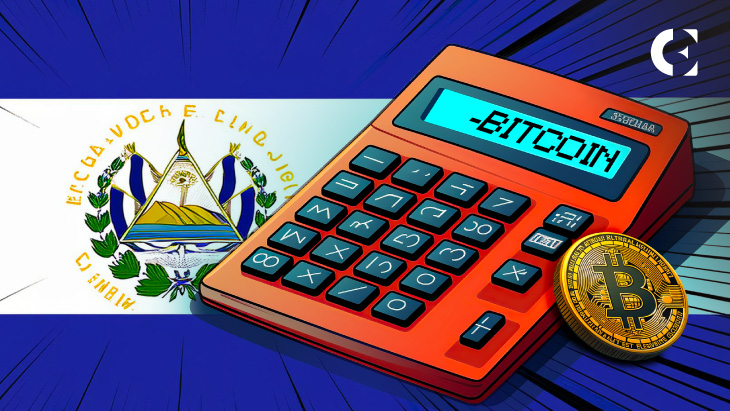- El Salvador secured a $1.4 billion IMF loan by scaling back Bitcoin policies.
- Bitcoin is no longer mandatory for merchants and restricted to public sector use.
- The government reduces involvement in the Chivo wallet amid financial transparency reforms.
El Salvador will scale back its Bitcoin policies to secure a $1.4 billion loan from the International Monetary Fund (IMF). Sources say the deal includes fiscal measures and expects $3.5 billion in additional financing from the World Bank and regional banks.
Read also: Bitget Secures BSP License in El Salvador to Expand Bitcoin Services
Also, the reforms will make Bitcoin acceptable to merchants voluntarily, limit public sector Bitcoin-related activities, and reduce the government’s involvement in the Chivo wallet. The move reverses President Nayib Bukele’s 2021 initiative, raising questions about Bitcoin’s role in national economies.
Beyond voluntary Bitcoin acceptance, the IMF loan agreement also requires that taxes be paid in U.S. dollars, hurting Bitcoin’s position in El Salvador. However, the government stated that it remains committed to increasing transparency and regulation to protect financial stability and investors.
While some Bitcoin advocates criticize the move, others speculate that El Salvador could reinvest IMF funds into Bitcoin.
El Salvador Buys More Bitcoin While Scaling Back Domestic Use
Meanwhile, the value of El Salvador’s strategic Bitcoin reserve hit an all-time high, with holdings now at 5,965.77 BTC, valued at over $625 million. Over the past 30 days, the country added 31 BTC to its reserves.
President Bukele’s administration made history with its growing BTC reserves. As the first nation to adopt Bitcoin as legal tender, President Bukele’s latest move has caused polarized reactions.
Critics argue the move betrays Bitcoin maximalism and succumbing to IMF pressure, while supporters highlight the necessity of financial stability for the nation’s economy. The reforms show the complexities nations face in adding cryptocurrencies into their financial systems, especially under international economic pressures.
Disclaimer: The information presented in this article is for informational and educational purposes only. The article does not constitute financial advice or advice of any kind. Coin Edition is not responsible for any losses incurred as a result of the utilization of content, products, or services mentioned. Readers are advised to exercise caution before taking any action related to the company.










